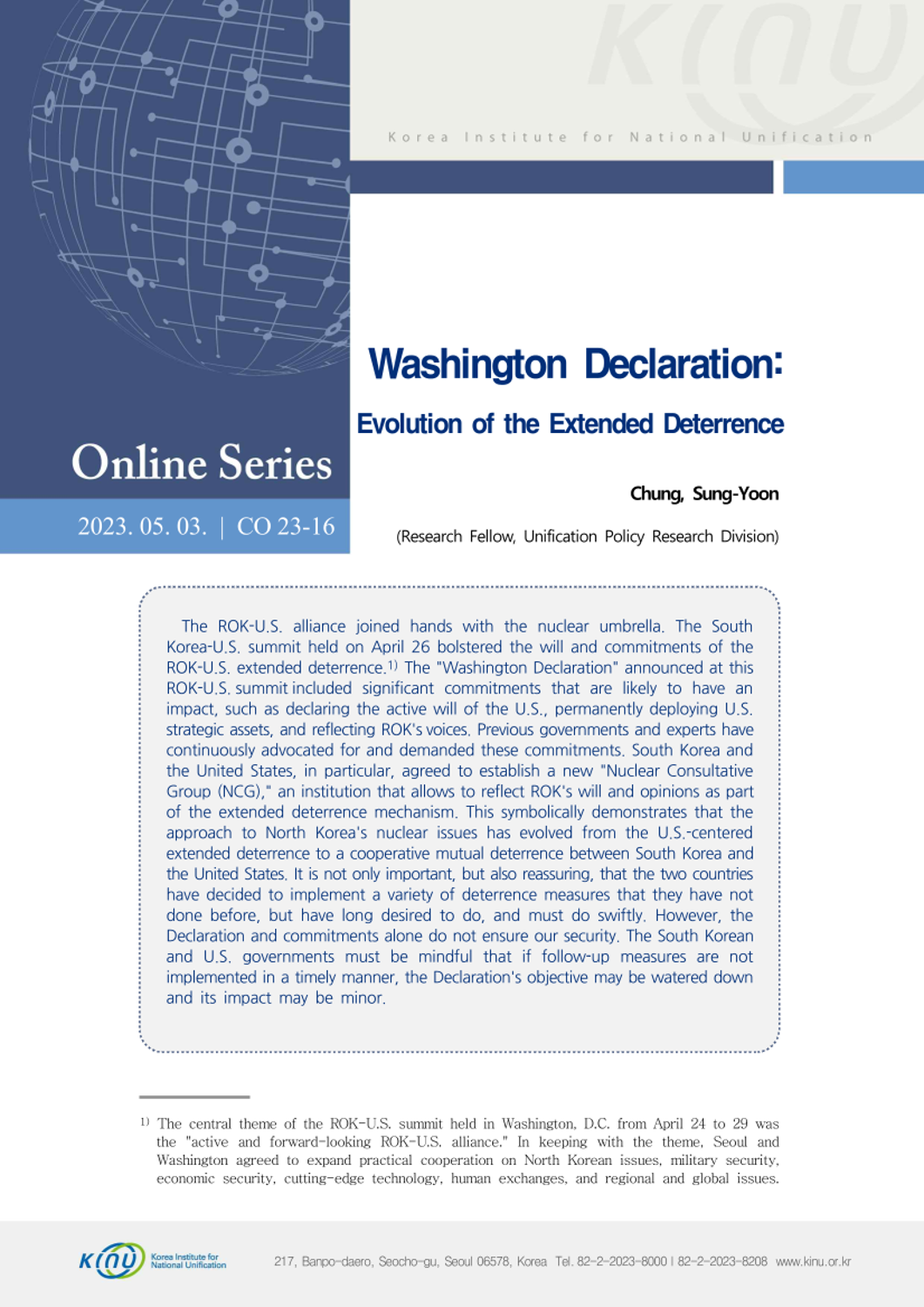
연구원발간물Online Series CO 23-16(E)
Washington Declaration: Evolution of the Extended Deterrence
- 개인저자
- Chung, Sung-Yoon
- 발행사항
- Seoul : Korea Institute for National Unification, 20230518
- 형태사항
- 9 p
- 총서사항
- Online Series
- 청구기호
- 000 CO 23-16(E)
책 소개
The ROK-U.S. alliance joined hands with the nuclear umbrella. The South Korea-U.S. summit held on April 26 bolstered the will and commitments of the ROK-U.S. extended deterrence. The central theme of the ROK-U.S. summit held in Washington, D.C. from April 24 to 29 was the "active and forward-looking ROK-U.S. alliance." In keeping with the theme, Seoul and Washington agreed to expand practical cooperation on North Korean issues, military security, economic security, cutting-edge technology, human exchanges, and regional and global issues. Although all of the topics discussed are essential to our national interests, the value of our alliance, and regional and global peace, it goes without saying that the most significant agenda item was North Korea's nuclear issue. This paper does not intend to explore the overall features of the ROK-U.S. summit, but confines its assessment to the details of the Washington Declaration.
The "Washington Declaration" announced at this ROK-U.S. summit included significant commitments that are likely to have an impact, such as declaring the active will of the U.S., permanently deploying U.S. strategic assets, and reflecting ROK's voices. Previous governments and experts have continuously advocated for and demanded these commitments. South Korea and the United States, in particular, agreed to establish a new "Nuclear Consultative Group (NCG)," an institution that allows to reflect ROK's will and opinions as part of the extended deterrence mechanism. This symbolically demonstrates that the approach to North Korea's nuclear issues has evolved from the U.S.-centered extended deterrence to a cooperative mutual deterrence between South Korea and the United States. It is not only important, but also reassuring, that the two countries have decided to implement a variety of deterrence measures that they have not done before, but have long desired to do, and must do swiftly. However, the Declaration and commitments alone do not ensure our security. The South Korean and U.S. governments must be mindful that if follow-up measures are not implemented in a timely manner, the Declaration's objective may be watered down and its impact may be minor.

